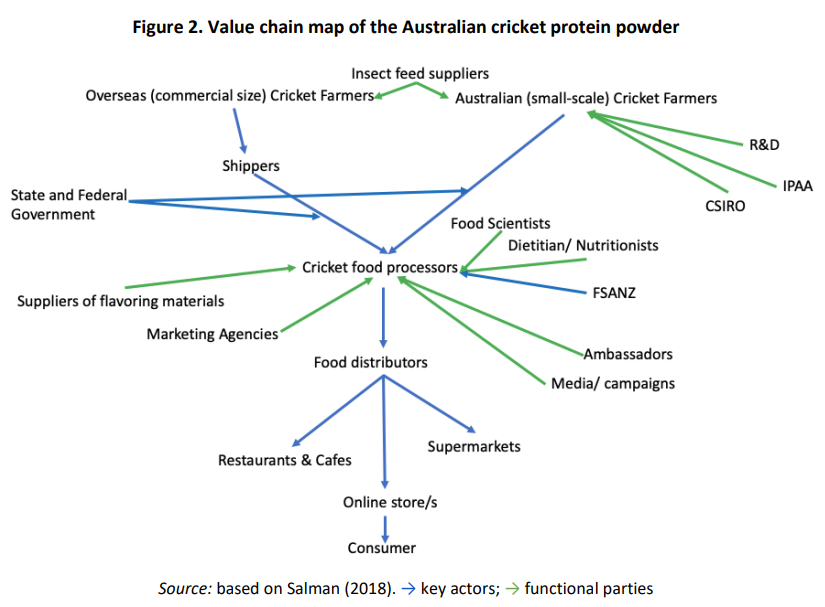The global cricket protein powder market is estimated to exceed $246.98 million by 2034, according to new statistics.
According to data from market research firm Fact.MR, the market is expected to exhibit a steady growth with a CAGR of 11.2 percent up to 2034. For context, the market size stood at $51.14 million in 2019.
The report’s analysts indicate cricket protein is gaining traction due to growing awareness of the impact of traditional animal agriculture and its symbiotic connection with the broader alternative protein movement.

They also emphasise the key role of ongoing research and development initiatives to address concerns related to taste, texture, and aroma.
The insect protein industry is particularly picking up momentum in Australia – in late 2023 AgriFutures Australia recently announced that it will invest $2 million into an insect research program over the next five years.
The country also formed an insect industry body, the Insect Protein Association of Australia, (IPAA) in 2017 to support Australian farmers and promote insect farming.
Crickets are classified as ‘non-traditional’ foods and no longer a ‘novel’ food by the Food Standards Australia and New Zealand (FSANZ) and the Advisory Committee on Novel Foods (ACNF), two of the country’s most important regulators.

Australia is currently home to various insect food companies that produce food for human consumption, including Circle Harvest (formerly Edible Bug Shop); Rebel Food Tasmania; and Grubs Up.
Besides its well received cricket-protein based products, Circle Harvest is particularly known for its educational programs designed to increase awareness and acceptance of insect-based proteins.
A 2022 survey found that 56.2% of participating Aussies said they would be “likely” to eat insects in the future, with 82.2% among those who had already tried them responding the same.
To stay up-to-date on the latest industry headlines, sign up to Future Alternative’s enewsletter.
Posted on:


